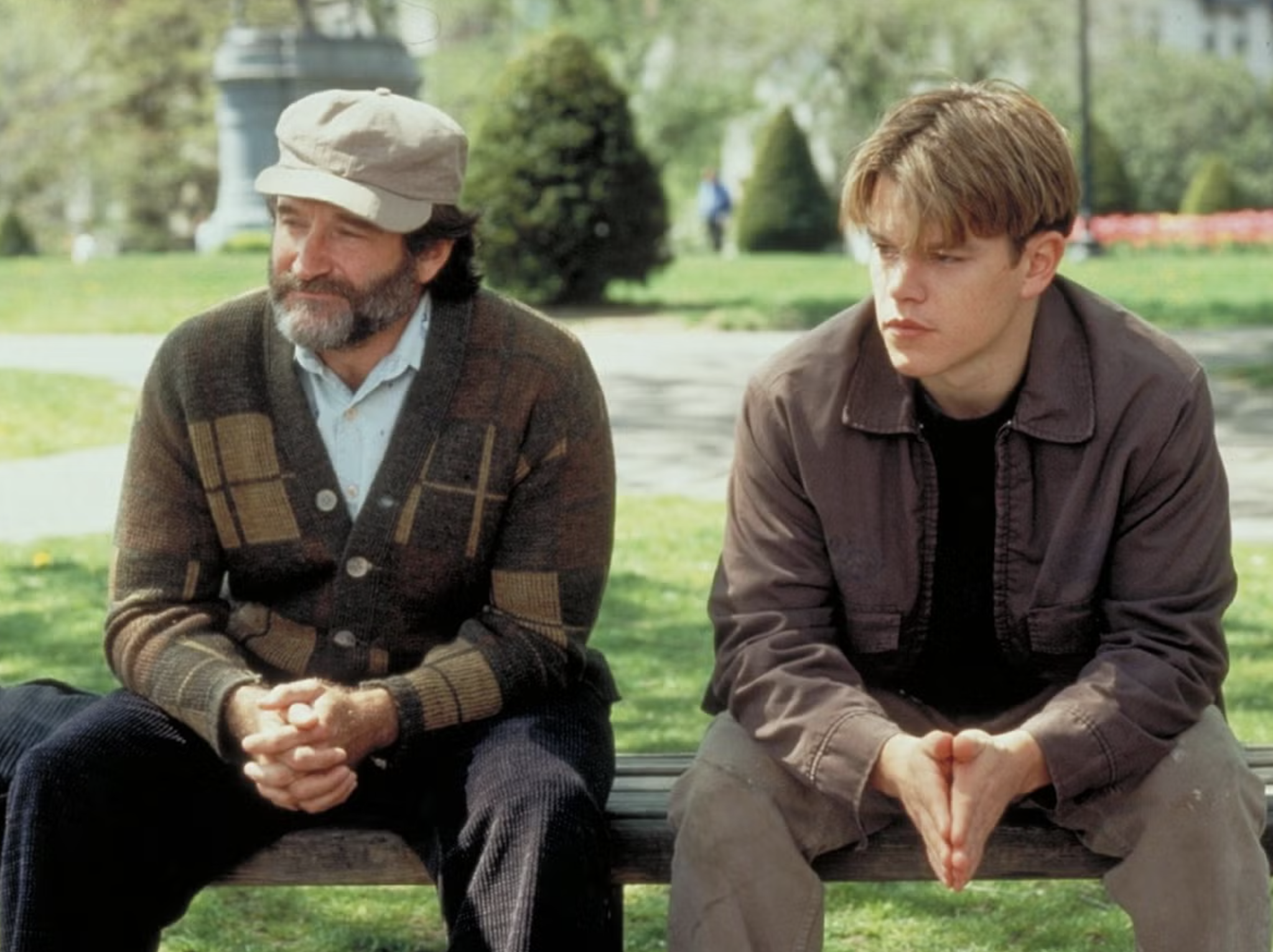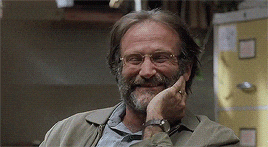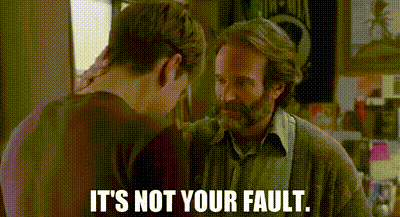
Take a deep dive into the therapeutic relationship as illustrated in the classic film Good Will Hunting, where a defiant genius and a compassionate therapist confront pain, grief, and regret in an emotional journey that changes them both.
Good Will Hunting (1997) is a widely acclaimed cinematic masterpiece, offering one of the most compelling depictions of therapy ever portrayed on screen — and it remains one of my personal favorite movies of all time.
The main protagonist is Will Hunting (played by Matt Damon) who is portrayed as an underachieving genius who works a modest life as a janitor at the prestigious MIT. Despite his intelligence, he’s emotionally guarded and frequently gets into brawls and run-ins with the law. One day he solves a difficult math equation on a chalkboard and is then approached by professors and faculty to pursue his talents in mathematics, but first he has to see a therapist and work out his personal problems.
Will’s journey into therapy begins reluctantly with a typical “I don’t need to see a shrink” attitude. But after a series of arrests and getting bailed out, he’s court-ordered to start seeing someone. He cycles through five therapists, including a hypnotist, antagonizing each one to the point that they refuse to work with him. Will’s sharp intellect and deep emotional defenses make it nearly impossible for anyone to break through and connect with him.
Finally he meets Sean Maguire (played by Robin Williams), a compassionate but no-nonsense therapist with a rich life of experiences, including deep wounds from his past, and accumulated wisdom. This article breaks down their relationship, session by session, to explore how it evolved throughout the film and potential lessons we can takeaway from it.
First Meeting: Tensions and Boundary Testing
Will’s first meeting with Sean begins with his usual strategy of intellectual dominance and boundary testing.
He scans Sean’s office, searching for things to criticize, and immediately targets his book collection. “You people baffle me. You spend all this money on beautiful, fancy books, and they’re the wrong f***ing books.” Sean, unfazed, spars back, standing his ground while playfully naming books he assumes Will has read.
Things reach a climax in the scene when Will begins to mock a painting hanging on the wall, which hits a personal nerve for Sean regarding the grief and loss of his wife. Sean’s reaction is striking and unconventional. After listening patiently, he suddenly grabs Will by the throat and threatens him: “If you ever disrespect my wife again, I will end you.”
While it’s an unethical move for a therapist, this unorthodoxy shows Will that he is not dealing with an ordinary therapy. Both Will and Sean share working class Irish backgrounds in the hard streets of Boston. Sean knows this language and he is willing to speak it if it’s the only way to get through to Will. Sean thus establishes himself as someone who understands Will’s world, where strength and confrontation often dominate.
This moment lays the foundation for their relationship. Sean shows he’s human, not just a clinical professional, but also that he won’t be intimidated or dismissed by Will’s antics. It’s the first step in breaking down Will’s defenses.
The Bench Scene: A Turning Point
After their intense first meeting, Sean invites Will to a park, where he delivers one of the most memorable monologues in the film. Sean begins by admitting his vulnerability, sharing that Will’s comments about the painting kept him up all night and genuinely bothered him.
By admitting Will’s comments hurt him, Sean shows he’s willing to show weakness, but then he sharply pivots to challenge Will directly, “But then you know what occurred to me? You’re just a kid. You don’t have the faintest idea what you’re talking about.”
Sean goes on to explain that despite Will’s intellectual brilliance, he lacks lived experience. Sean shares personal moments that defined him — seeing the Sistine Chapel in person, being truly in love with someone, the scars of losing friends in war, and watching a loved one die of cancer. These deep experiences illustrate the limitations of knowledge without life. Sean’s speech is a blend of tough love and empathy, forcing Will to confront the gap between his intellectual defenses and his emotional reality.

The bench scene sets the tone for the remainder of their therapy. Sean acknowledges Will’s brilliance but challenges him to live beyond books and theories. Sean leaves the door open for Will to continue having sessions with him only if he is ready to truly open up.
Second Therapy Session: Silence
The next therapy session begins with complete silence as Sean and Will sit across from each other. After two emotionally charged meetings and still lingering tensions, neither is willing to be the first to reach out or break the quiet.
The entire hour goes by and neither says a word. While this may feel like an unproductive session, this is another important moment in their relationship. The power of silence acts as a reset button in their relationship.
Sometimes, simply sitting in the same room without confrontation (“sharing space”) can be a meaningful step toward healing. It allows both Sean and Will to recalibrate, setting the stage for a more productive dynamic moving forward.
Third Therapy Session: Humor and Opening Up
The silence stand-off continues into their third session, with each still not willing to budge or say the first word.
Finally Will breaks the silence with a dirty joke, immediately breaking the tensions in the room and reinitiating conversation in a fun and light-hearted way. After they share a laugh, Will begins to open up about a girl he’s been dating recently. Will mentions how he worries the girl is “too perfect,” and that getting to know her more would just shatter that illusion. Sean wisely responds back, “That’s a super philosophy, that way you can go through your entire life without ever really getting to know anybody.”
Sean opens up about his wife and the quirks behind their love, like her farting in her sleep and waking up the dog. After all these years, these are the little moments he remembers and cherishes about her. No one is “perfect,” and it’s often the imperfections that make someone special to us.

Robin Williams improvised the story about his wife causing Matt Damon to genuinely burst out into laughter during this scene.
After more light-hearted banter, Will turns the tables and ask why Sean never got remarried. Will firmly replies, “My wife is dead.” Then Will, always testing and challenging, uses one of Sean’s lines against him: “That’s a super philosophy, that way you can go through your entire life without ever really getting to know anybody.”
Fourth Therapy Session: Love, Opportunities, and Regrets
Now on much more amicable terms, Will opens up with an honest question, “Do you ever wonder what your life would be like if you never met your wife?”
Sean accepts that there’s been a lot of pain and suffering in his relationship, but he doesn’t regret any of it, because the good moments were worth it and he wouldn’t trade a single day with her through good or bad times. Will presses to learn more, “When did you know she was the one?”
“October 21, 1975.”
It was game six of the World Series, the biggest game in Red Sox history – and Sean slept on the sidewalk all night with friends to get tickets. He recalls the momentous occasion when the Red Sox hit a game-winning home run and everyone rushed the field.
“Did you rush the field?”
“Hell no, I wasn’t there. I was in a bar having a drink with my future wife.”
The story illustrates how Sean knew his wife was the one when he was willing to miss the opportunity of a life-changing moment (being at a historical sporting event) for an even bigger life-changing moment (finding love and his future wife).
Will is incredulous and yells at Sean for missing the game. He asks, “How did your friends let you get away with that?” And Will simply replies, “I just slid my ticket across the table and said, ‘Sorry guys, I gotta see about a girl.'”
Fifth Therapy Session: Facing Potential and Values
In this session, Will begins to ask deep questions about what he wants to do with the rest of his life and what are the best uses of his intelligence and talents.
After a job interview with the NSA, Will goes into a diatribe about how his talents could be hypothetically used for catastrophic consequences, like overthrowing foreign governments, destabilizing entire countries, or getting his friends sent to fight some war overseas.
Sean asks him directly, “What are you passionate about? What do you want?”
They discuss the honor of work, including construction work and Will’s job as a janitor and the pride he takes in it, even though society may not view it as the most rewarding job in the world. Sean prods further asking why he chose to be a janitor at the most prestigious technical university in the world, and why he secretly finished math problems, highlighting that there may be something else driving Will.
Sean asks again what Will wants to do with his life, and he deflects by joking that he wants to be a shepherd on his own plot of land away from the world. Sean isn’t willing to waste his time and decides to end the session early. Will has a final outburst before leaving, “You’re lecturing me on life? Look at you, you burnout!”
This session reveals how Will is afraid of his potential and talents, including the responsibility that comes with them. “I didn’t ask to be born like this.” He feels safe continuing to live in his hometown, work his everyday job, and hangout with his childhood friends. He’s afraid to dream bigger. There may be something deeper driving Will’s thirst for knowledge, but he doesn’t know his core values and motivations, and doesn’t truly know himself or what he wants out of life.
Sixth Therapy Session: “It’s Not Your Fault”
The next therapy session begins with Sean uncovering more about Will’s painful past, particularly his life as an orphan and the physical abuse he endured with his foster parents. Sean reveals that he, too, grew up with an abusive, alcoholic father, forging another shared bond between them.
As their conversation unfolds, Will correctly guesses that his final psychological report likely diagnoses him with “attachment issues” and a “fear of abandonment.” He acknowledges that these issues may have driven him to push his girlfriend away, leading to their recent breakup. When Sean gently asks if he wants to talk about it, Will declines.
Sean then shifts the focus, holding onto the reports as he says, “I don’t know a lot. But you see this? All this shit? It’s not your fault.”
At first, Will politely agrees, brushing off the comment, but Sean repeats the line: “It’s not your fault.” With each repetition, Will’s emotional defenses begin to crumble, and he cycles through a range of emotions—politeness, confusion, anger, and aggression—until the weight of Sean’s words fully sinks in. Overwhelmed, Will finally breaks down and cries, releasing years of suppressed pain and guilt.

In this profoundly cathartic moment, Sean embraces Will, offering the safe and empathetic connection that has been absent from Will’s life. It’s a turning point where Will confronts his past without blame or self-judgment, finally opening the door to acceptance and healing.
Last Goodbye
In their last meeting, Will thanks Sean for all of his help and shares the good news that he has accepted an exciting new job. Sean, in turn, reveals his plans to travel and explore life on his own terms. They exchange numbers to keep in touch, symbolizing the respect and connection they’ve built.
This moment underscores that therapy is often a chapter in life that prepares individuals to continue their journeys independently. Both Will and Sean needed to say their goodbyes and go their separate ways to continue following their paths in life. Will has learned to face his fears and embrace his potential. Sean has rediscovered purpose and fulfillment through helping Will. Their goodbye is bittersweet but profound, a reminder that growth often requires letting go and moving forward.
In the final scene, Will leaves a letter at Sean’s place that reads, “If the professor calls about that job, just tell him sorry—I had to go see about a girl.” This moment beautifully exemplifies Will’s newfound courage to follow his heart and take meaningful risks.
Conclusion
The therapeutic relationship between Sean and Will in Good Will Hunting is a masterclass in storytelling and psychology. Through humor, vulnerability, and mutual respect, Sean helps Will break through years of pain and fear, while Will reignites Sean’s passion for life. Their journey is a powerful testament to the transformative potential of therapy — and how creating a space of acceptance, healing, and growth can change lives.
Enter your email to stay updated on new articles in self improvement:
